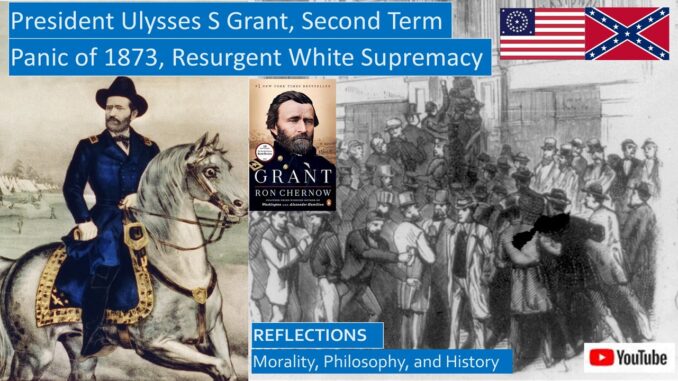
Why was President Grant easily reelected to second term, when there were so many problems faced in his first term?
Why did the Liberal Republican Party become a third party? Was it truly liberal?
Why did the Union Army fight several battles in Louisiana after the Civil War?
How did the Panic of 1873, and the subsequent economic downturn, eventually lead to the end of Reconstruction?
How did the Democrats win control of the House in the 1874 midterm elections? What were the political implications?
ULYSSES S GRANT: CIVIL WAR AND FIRST PRESIDENTIAL TERM
Many historians may not rank Ulysses Grant as a top ten President, but he was admired by his contemporary Northern voters for his tough enforcement of the Reconstruction Civil Rights Acts in the South, though many were growing weary of Southern intransigence in his second term. Although some in his party bolted, forming the short-lived Liberal Republican Party, Grant handily won reelection for a second term. These breakaway Republicans were not liberal by our modern definition, as they opposed Reconstruction and Civil Rights for the freed black slaves, as they paradoxically supported civil service reforms.
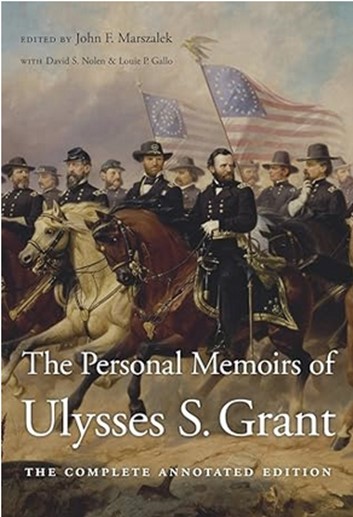

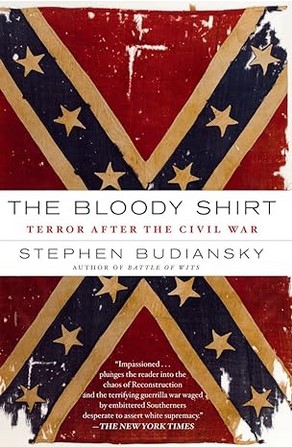
Soon after his victory at Vicksburg, Mississippi, on July 4, 1863, giving the Union complete control over the Mississippi River basin, General Ulysses S Grant was named overall commander of the Union forces. His nickname was Unconditional Surrender Grant. On that same day, General Meade won a Union victory at the Battle of Gettysburg.
At the final major battle of the Civil War at Appomattox, General Grant accepted the surrender of Robert E Lee’s army. He was lenient towards the Confederate troops: they were not held as prisoners of war. The officers were allowed to keep their horses and firearms. Once the Confederate soldiers stacked up their rifles and promised to follow the laws of the United States, they were free to return home, often riding Union military trains free of charge.
France and Spain took advantage of the Civil War to interfere in the affairs of Mexico and Santo Domingo. After Grant dispatched Union troops to the border of Mexico, France and Spain withdrew their troops, showing new respect for the American Monroe Doctrine.
As President Johnson’s popularity declined, General Grant’s popularity increased. He was the only person nominated for President by the Republican Party, and he handily won the Presidency.
Siege of Vicksburg: Ordinary Union Soldiers and Generals Grant and Sherman Recount the Struggle
https://seekingvirtueandwisdom.com/siege-of-vicksburg-ordinary-union-soldiers-and-generals-grant-and-sherman-recount-the-struggle/
https://youtu.be/U6KNO6IkVQs
Robert E Lee Surrendering to Grant at Appomattox, Ending the American Civil War
https://seekingvirtueandwisdom.com/surrender-at-appomattox-courthouse-ending-the-american-civil-war/
https://youtu.be/_Dr7qia6XkQ
General Grant’s Memoirs, Civil War Diplomacy, Post-War Events in Mexico and Santo Domingo
https://seekingvirtueandwisdom.com/general-grants-memoirs-civil-war-diplomacy-post-war-events-in-mexico-and-santo-domingo/
https://youtu.be/14xYWgYmb10
General Grant Supporting Civil Rights and Reconstruction After the Civil War, and His Conflicts with Andrew Johnson
https://seekingvirtueandwisdom.com/general-grant-supporting-civil-rights-and-reconstruction-after-the-civil-war-and-his-conflicts-with-andrew-johnson/
https://youtu.be/9OJnW4hAizI
As the leading Union general after the war, and as President, Grant enforced Reconstruction policies, enforcing the laws granting civil rights to black citizens, and protecting them from the white supremacists of the newly formed Ku Klux Klan. These KKK night riders terrorized and murdered blacks, often stealing or burning their property, intimidating them to keep them from voting.
President Ulysses S Grant, First Term, Defeating the KKK, Fighting for Civil Rights
https://seekingvirtueandwisdom.com/president-ulysses-s-grant-first-term-battling-the-kkk-fighting-for-civil-rights/
Our biographer Ron Chernow summarizes the corruption in Grant’s America: “Grant had the misfortune of presiding over America in the corrupt Gilded Age. Syndicates known as ‘rings’ reigned in many areas of society, and newspapers covered their larcenous escapades with relish. The corruption arose from numerous sources: the buccaneering tactics of big business; the rise of ruthless political machines; the protracted rule of the Republican Party; and the helter-skelter settlement of the West.”
Chernow continues: “The railroads represented a festering source of corruption, issuing free passes to Grant and other public figures, who accepted such largess as legitimate perks of their jobs. With the postwar boom and a universal thirst for riches came a complete breakdown of public and private morality. Grant couldn’t inoculate his administration against this epidemic, which infected both parties and every state legislature.”[1]
GRANT EASILY WINS THE 1872 PRESIDENTIAL ELECTION
Chernow writes: “Such was Grant’s personal popularity- his wartime prestige stood quite apart from his administration’s records- that his renomination by Republicans” for a second term “was a foregone conclusion.”
Grant was popular among Union veterans and many Northerners, since he led the Union to victory, but he was also grudgingly popular with many Confederate veterans, who were grateful for his leniency when Robert E Lee’s forces surrendered at Appomattox, and when the other Confederate armies surrendered. But the unending corruption of Grant’s subordinates and the party’s domination by corrupt political bosses and machines, including many Cabinet members, caused a split in the party, leading to the formation of the Liberal Republican Party, which nominated the quixotic New York Tribune editor Horace Greeley as their Presidential candidate.
Although the Liberal Republicans “favored civil service reform, sound money, and low tariffs,” they also supported states’ rights, opposing Reconstruction, and opposing the posting of Union forces in the Confederate states, calling it “bayonet rule.” Oddly, though many Liberal Republican party members were former abolitionists, they endorsed home rule in the South and opposed the Ku Klux Klan Act that enabled Union troops to crack down on the white supremacists who terrorized black citizens.
Chernow writes: “Horace Greeley resembled a cartoon with his round face, wire-rimmed spectacles, ghostly pallor, and faint wisps of white hair straggling across a bald pate. With a shambling walk, he was slovenly in dress and partial to white dusters. A prophet of lost causes, he” espoused “pet theories ranging from profit sharing to vegetarianism, temperance to utopian socialism.”
Previously “Greeley had been admirably consistent in fighting slavery. But during the war he had been a volatile figure, now for war, now for peace, driving Lincoln to distraction.” “Greeley now executed a startling reversal away from African Americans. From being a wholehearted abolitionist, he became an exponent of southern amnesty who opposed the Ku Klux Klan law.” “He typified northern Republicans who experienced moral fatigue on race issues and expressed newfound sympathy with southern whites.” The Democratic Party also nominated Greeley for President.
Grant warned his countrymen that a Democratic victory in 1872 would negate the hard-fought, bloody Union victory, neutering the Civil War Amendments guaranteeing civil rights, due process, and access to the ballot box for black citizens. He made abolition a foreign policy goal, applauding emancipation efforts in countries like Brazil, Puerto Rico, and Cuba. Nearly all black voters supported Grant, and the civil rights orator Frederick Douglass actively campaigned for his reelection.
Life and Times of Frederick Douglass, After Slavery as an Abolitionist
http://www.seekingvirtueandwisdom.com/life-and-times-of-frederick-douglass-after-slavery-as-an-abolitionist/
https://youtu.be/M0sx85oMRQA
Chernow writes: “In the nineteenth century, it was still thought unseemly for a presidential candidate to campaign and Grant gladly stayed on the sidelines.” His victory was assured by his opponent’s lackluster campaign. Greeley was the first presidential candidate to campaign by rail, delivering speeches from the back of the train at each stop. But “the more Greeley talked, the lower he sagged in public esteem,” many thought his speeches were foolish.
Grant won by a landslide, capturing fifty-six percent of the vote, which was the largest margin between the campaigns of Andrew Jackson and Theodore Roosevelt, and Republicans captured large majorities in both the Senate and the House. Federal troops posted in the South guaranteed fair elections, and the black vote was crucial to Grant’s victory. One exception was Louisiana, where over two thousand Republican supporters were killed or wounded in the weeks leading up to the election.
But Horace Greeley’s life and career was shattered: his wife passed away, he lost his newspaper, and he himself passed away three weeks after the election, “doleful and exhausted.” Grant led his funeral mourners down Fifth Avenue in New York City.
Chernow writes: “Right before the election, the New York Sun exposed the King of Frauds, the Credit Mobilier scandal. During the Johnson administration, the Union Pacific Railroad had set up a dummy construction company, Credit Mobilier, with the same executives as the parent railroad. The directors of Credit Mobilier awarded themselves with lavish salaries, all covered by government payments that far exceeded the actual cost of constructing the railroads.” Although Grant himself was not involved, several congressmen, the Speaker of the House, and Grant’s past and current Vice President were exposed for corrupt purchases of Credit Mobilier stock at bargain basement prices.
Congress brought another scandal upon itself when it passed a fifty percent pay raise for all Congressmen in 1873. This was not controversial, but what was controversial was that they made the pay raise retroactive, giving each congressman a hundred percent bonus. [2] This provoked the state of Ohio to approve the dormant Bill of Rights amendment limiting immediate Congressional pay raises, which was eventually passed as the 27th Amendment a century later.
How a Student’s C-Graded Paper Led to the Ratification of the Bill of Rights 27th Amendment After Two Hundred Years
https://seekingvirtueandwisdom.com/how-a-students-c-graded-paper-led-to-the-passing-of-the-27th-amendment/
https://youtu.be/COe71iyi4q0
POST-CIVIL WAR BATTLES IN LOUISIANA
Chernow writes: “No Southern State presented more insurmountable problems to Grant than Louisiana, which had become a hotbed of hatred and corruption,” with “resurgent Klan activity.”
Chernow writes: “In spite of Grant’s reluctance to meddle in Louisiana, the wholesale breakdown of law and order made it imperative. In early March,” the Republican “Governor Kellogg described how” white supremacists “had seized a police station and said he would need to send in state militia under General James Longstreet,” a former Confederate General who now supported Reconstruction and the Republican Party, “to recapture it.”
Chernow continues: “In April 1873 William Ward, a black Republican,” summoned his black supporters and warned them that Democrats would try to seize by force the country seat of Colfax, a lush place of swamps and bayous and a black Republican stronghold. To avert this, they threw up earthworks around the courthouse, guarding it for several weeks. This display of black power was anathema to the white community.”
“On Easter Sunday,” “a mob of several hundred whites, armed with rifles and a small cannon, opened fire on the courthouse, setting it ablaze. Even though its black defenders ran up a white flag of surrender, begging for mercy, the mob butchered dozens of them. Black families were afraid to claim the many corpses littering the ground.” Some time later, the Union army “found heaps of dead black bodies being scavenged by dogs and buzzards.” As many as three hundred blacks were butchered that day.
A week later, the Union Army arrived with a hundred soldiers, arresting eight suspects. Everyone knew they could not be prosecuted under state laws. “Invoking the Enforcement Act of 1870, a federal grand jury handed down seventy-two indictments, but only three men were convicted. In 1876, in United States v Cruikshank, the Supreme Court determined that the perpetrators could not be prosecuted under the Fourteenth Amendment because it governed only state actions, not individual ones. The Colfax murderers thus walked off scot-free, sending a powerful message to white supremacists that they could slay blacks without a penalty.”[3] This precedent stands to this day, it has never been overturned.[4]
Chernow writes: “As Grant attempted to normalize federal relations with former Confederate states, he struggled with newly emergent white supremacist groups, hydra-headed offshoots of the Klan with names such as the White League, various rifle clubs, Red Shirts, and Knights of the White Camelia. They tiptoed around prosecution by claiming to be county militia.” These paramilitary units sought to violently evict the Republicans from power. Recent “bloodcurdling events convinced Grant that despite northern fatigue and hypocritical indifference, he lacked the luxury of pulling federal troops from the South.”
Chernow continues: “This was the prelude to a state of anarchy that engulfed New Orleans on September 14, 1873.” “In a veritable coup d’etat, thousands of whites, many of them former Confederate soldiers instigated by the White League, barricaded the streets, overpowered black militia and the racially integrated Metropolitan Police Force led by General Longstreet, and took over City Hall and the statehouse, killing more than twenty people. Afterward, they announced that Governor Kellogg had been overthrown.”
Grant was informed “that the rebellion had ‘embraced nearly every white man in the community.’ The battle had witnessed an extraordinary event: General Longstreet now fired on men he had commanded during the war, his small army having killed twenty-one White Leaguers,” but they were forced to retreat.
Terror During Reconstruction, White League Confronts General Longstreet and Union Army
https://seekingvirtueandwisdom.com/terror-during-reconstruction-white-league-confronts-general-longstreet-and-union-army/
https://youtu.be/bF3w2RrSaM0
Grant ordered the conspirators to disperse within five days. “To back up his words, he dispatched five thousand troops and three gunboats to reinstate Governor Kellogg. Almost overnight, the federal garrison in New Orleans swelled to America’s largest. Grant’s decisive actions pacified a dangerously unstable situation: the insurgents disbanded,” the usurpers “surrendered state offices, and William Kellogg was restored as rightful governor.”
But more and more northerners, tiring of the constant battles, wanted the federal government to pull out its troops, leaving black citizens to their fate. Grant worried that the Civil War would reignite. The White League was stockpiling tens of thousands of guns to someday seize control of the state.[5]
PANIC OF 1873: END OF RECONSTRUCTION
Before the Civil War, Andrew Jackson abolished the Second Bank of the United States, which diminished the ability of the federal government to stabilize the economy. Some scholars say this aggravated the Panic of 1837, and perhaps Grant could have softened the Panic of 1873 if the United States had a central banking system, which was not established until the creation of the Federal Reserve System in 1913.[6]
In August 1873, Grant’s new treasury secretary reported that the American economy was prospering. But on September 8, after a major offering of railroad bonds failed, bringing down a leading brokerage firm, “Wall Street banks started to fold in a cascading series of closures that sparked chaos in the financial district. Gold prices dove, stock prices collapsed, and a general panic seized” New York City. The New York Stock Exchange halted trading for ten days. Grant authorized the immediate purchases of Treasury bonds to add liquidity to the banks, but this was not enough to avoid a deep depression that lasted for five brutal years.
Chernow continues: “Much of the industrial landscape lay in ruins: half the nation’s railroads went into receivership and half its iron furnaces shut down. In farming areas, crop and land prices plunged. In New York City alone, a quarter of all workers were tossed from their jobs.” “Deflation dragged down wholesale prices by thirty percent.” Wages were cut, monopolies grew, and many unions became violent and radical.
During the Civil War, the Union issued greenback currency that could not be redeemed for silver or gold. Grant’s administration sought to reduce the number of greenbacks so it could transition to a currency that was convertible to gold. But to deal with the economic crisis, Congress passed legislation greatly increasing the supply of greenbacks. Though we now understand that the money supply should be increased when credit is tight, this was not considered beneficial in Grant’s time. Many bankers opposed expanding the greenback supply, so Grant vetoed the “Inflation Bill.” This veto reassured European investors who financed American railroads and heavy industry, who preferred to be paid in hard money. Grant signaled a return to the gold standard by 1879, when Americans could convert greenbacks into gold coins.[7]
DEMOCRATS CAPTURE HOUSE, SOUTHERN VIOLENCE RAMPS UP
Chernow writes: “The midterm election results in the autumn of 1874 were calamitous for the Republican Party, a stunning repudiation of Grant and his inflation bill veto. Republicans relinquished their sizable majority in the House of Representatives” to the Democrats for the first time after the Civil War, although the Republicans did retain their majority in the Senate.
Chernow continues: “The main reason for the electoral landslide was the economic slump, which left voters in a surly mood, and Grant’s refusal to countenance a dose of inflation to conquer it. The aura of corruption around the White House had also contributed to a sense of an administration adrift.”
Democratic Southerners now dominated the House committees. They organized congressional investigations accusing the administration of corruption, seeking to discredit Reconstruction policies. This encouraged white supremacists across the Confederate states to violently oppose the election of Republicans to state offices.
White supremacists in Mississippi were alienated by the number of black state legislators: “55 of 155 state representatives were black, as were 9 of 36 state senators.” “Especially alarming was the violence predicted in Vicksburg, where armed whites prowled the streets before the municipal elections.” “On the July 4th anniversary of Grant’s Vicksburg victory, white thugs pounced on a patriotic celebration held by black Republicans and opened murderous fire,” killing several men.
But, due to the change in the political climate, Grant refused to send troops. But election day was quiet because blacks were intimidated from voting, “white supremacists expelled Republicans from local offices without firing a shot.” White supremacists mobilized in other states to retake control.
In December 1875, “a bloodless coup occurred in Vicksburg when armed” white supremacists seized the “courthouse, forcing the black sheriff to flee, then chased out the board of supervisors.” Afterwards, “black and white militias confronted each other on a bridge south of town; as blacks began to retreat, armed whites fired and killed several blacks. Whites then went on a homicidal spree, pulling blacks from their homes and killing them.” In the days ahead, about three hundred blacks were murdered. Grant finally authorized sending troops, ordering the rebels to disperse in the next five days. [8]
Presidency of Lyndon Baines Johnson, Civil Rights, Great Society, and Vietnam War
https://seekingvirtueandwisdom.com/presidency-of-lyndon-baines-johnson-civil-rights-great-society-and-vietnam-war/
https://youtu.be/lydW8mfpJGQ
CONTINUING SCANDALS HAUNT GRANT’S ADMINISTRATION
The Grant administration suffered another major scandal: the Whiskey Ring. The Lincoln administration had passed an unpopular tax on whiskey. Distillers falsified returns reporting the amount of liquor brewed, which were certified by revenue agents. When they conspired with the distiller, they would split the tax savings. And, of course, one crooked internal revenue supervisor was Grant’s friend, and off to prison he went, along with several other crooked acquaintances. In the end, over 350 indictments were handed down to Whiskey Ringers.[9] Another major scandal involving fraud at Indian trading posts involved Grant’s Secretary of War and Orvil, his brother.[10]
Ulysses Grant was sufficiently popular that many encouraged him to run for a third term. But Northern public support for enforcing the Reconstruction Civil Rights laws was waning fast. The financial hardships caused by the Panic of 1873 led many voters to ask why they were funding Union troops who were occupying the South. The contested 1876 Election led to the end of Reconstruction when the federal troops protecting the civil rights of black citizens were pulled out of the South, leaving them to their fate under their former masters. This was the beginning of the Redemption Era, when segregationist Jim Crow legislation was passed, when white supremacists could terrorize, intimidate, rape, murder, and steal from blacks with no legal repercussions.
We will also reflect on Grant’s Indian policy and how General George Custer’s defeat at the Battle of Little Big Horn affected how the Indians were treated. And, in Eric Foner’s Second Founding, we review not only the process of how the Confederate states were readmitted back into the Union, but also the Supreme Court decisions that enshrined, then dismantled, the Jim Crow segregation system.
Redemption Era of Jim Crow, Reconstruction Ends after Contested 1876 Election
https://seekingvirtueandwisdom.com/redemption-era-of-jim-crow-reconstruction-ends-after-contested-1876-election/
1876 Contested Presidential Election: Precedent for January 6th Fake Elector Scheme?
https://seekingvirtueandwisdom.com/1876-contested-presidential-election-precedent-for-january-6th-elector-scheme/
https://youtu.be/Ny0iyVYatB4
President Ulysses Grant’s Indian Policy, and Custer’s Defeat at the Battle of Little Bighorn
https://wp.me/pachSU-1hN
https://seekingvirtueandwisdom.com/president-grants-indian-policy-and-custers-battle-of-little-bighorn/
Second Founding: The Reconstruction Amendments to the Constitution, by Eric Foner
http://www.seekingvirtueandwisdom.com/second-founding-the-reconstruction-amendments-to-the-constitution/
https://youtu.be/UciDV5laOLg
CONCLUSION
The dilemma facing President Grant and Northern voters was that you can force the South to protect the Civil Rights of its black citizens using the Union Army, but you cannot force them forever, as there were many Northerners who did not sympathize with the plight of the freed slaves. Eventually, there needs to be a growing core of white citizens in the South who will agree that, regarding their black neighbors, they need to err on the side of compassion, a phrase coined by Coach McCartney when he founded Promise Keepers.
Promise Keepers: Black Lives Matter To These Evangelical Leaders
http://www.seekingvirtueandwisdom.com/promise-keepers-black-lives-matter-to-these-evangelical-leaders/
https://youtu.be/02MWE1ANlWo
This nation faced a similar dilemma when the Supreme Court compelled schools, mostly in the Deep South, to desegregate with all deliberate speed. The question is simple: Can you indefinitely compel Southern parents to send their children to desegregated schools? Desegregation took decades and was never thoroughly implemented. Although black children received improved educational opportunities, many whites resisted, and many sent their children to church-sponsored segregation academies. A more conservative Supreme Court halted busing and the extreme efforts to desegregate schools, which will likely evolve into the return of a separate but equal public school systems, except that schools will be far more equal than they were a hundred years ago.
Hannah Arendt Questions Whether School Desegregation Was Wise: Little Rock and Civil Rights
https://seekingvirtueandwisdom.com/hannah-arendt-questions-whether-school-desegregation-was-wise-little-rock-and-civil-rights/
https://youtu.be/nsqngH2gbNc
DISCUSSING THE SOURCES
We discussed best-selling Ron Chernow’s biography, Grant, in our reflections on his conflicts with President Johnson and his role as Union general in Reconstruction during Johnson’s presidency.
Ron Chernow covers topics we skipped over, such as:
- How Grant was the first President to court the feminists, gaining the endorsement of the leading suffragist Susan B Anthony.
- Political struggles surrounding his Supreme Court appointments.
- Grant’s relationship with his father, Jesse Root Grant, and his demise.
- Additional racial violence in Mississippi.
- His daughter Nellie’s troubled marriage.
[1] Ron Chernow, Grant (New York: Penguin Books, 2017), Chapter 34, Vindication, p. 729.
[2] Ron Chernow, Grant, Chapter 34, Vindication, pp. 739-753.
[3] Ron Chernow, Grant, Chapter 35, A Butchery of Citizens, pp. 757-759.
[4] Joseph L Hoffman, The Evolution of American Federalism, The Great Courses Plus, 2024, Lecture 10, Equal Protection’s Failed Promise.
[5] Ron Chernow, Grant, Chapter 35, A Butchery of Citizens, pp. 760-763.
[6] https://en.wikipedia.org/wiki/Bank_War
[7] Ron Chernow, Grant, Chapter 36, The Bravest Battle, pp. 776-783.
[8] Ron Chernow, Grant, Chapter 36, The Bravest Battle, pp. 783-795.
[9] Ron Chernow, Grant, Chapter 37, Let No Guilty Man Escape, pp. 796-809.
[10] Ron Chernow, Grant, Chapter 38, Saddest of the Falls, pp. 819-827.

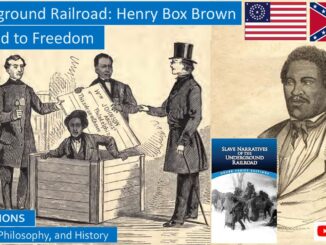
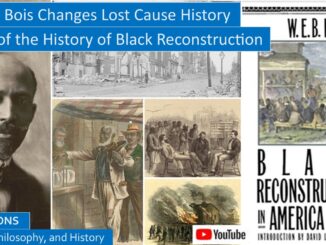
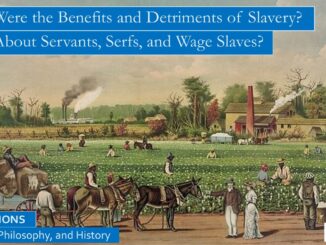
Be the first to comment